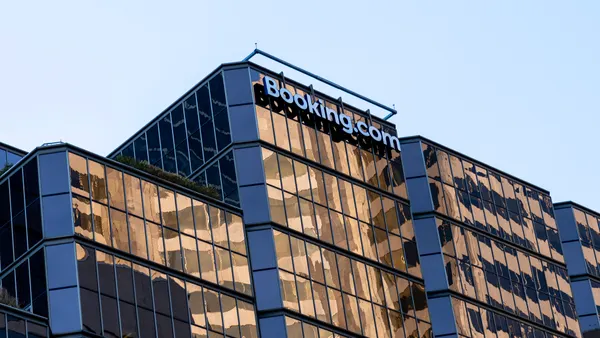Dive Brief:
- The amount of pessimism, uncertainty and disconnect employees experience in the workplace is “reaching critical levels, endangering employee well-being and undermining productivity,” according to meQuilibrium's Summer 2025 State of the Workforce Report, released Wednesday.
- Among the 5,477 employed adults surveyed, pessimism was rampant, the report found. Sixty-seven percent of employees said the state of the country makes them feel worse; 35% said they feel worse about their work situation; and 49% said they feel worse about their finances.
- “Pessimism in the workforce represents a greater threat than just complaining about one’s job around the water cooler — it directly undermines workplace productivity and mental health,” Brad Smith, chief science officer at meQ, said. “We found that employees with work-related pessimism experience an over 60% reduction in productivity and 128% greater risk of depression.”
Dive Insight:
Pessimism can be magnified by uncertainty, the report found; a high level of uncertainty-related stress more than triples the rate at which employees see their work situation pessimistically.
“The rise in uncertainty-related stress impacts more than feelings — it’s costing companies: individuals who report a high degree of uncertainty-related stress also exhibit much greater productivity impairment, indicating that uncertainty may be reducing output by as much as half,” Smith said.
Nearly 1 in 3 workers with high amounts of uncertainty-related stress also have a high degree of burnout, Smith said.
More than half of workers surveyed also experience at least one symptom of workforce disconnect, which stems in part from burnout and broken trust, the report found. Those with a severe disconnect reported a 66% loss of productivity, meQ said.
“In a world defined by volatility and ambiguity, building resilience is no longer optional — it’s essential,” Smith said. “Our research shows that skills like emotion control and empathetic leadership can shield employees from the toxic effects of uncertainty and pessimism. Even in turbulent times, we can equip people to thrive.”
Economic anxiety, too, is fueling workers’ concerns. More than 6 in 10 U.S. workers said they might get a second job or start a side hustle in the next year for extra income, according to a June 12 report from the American Staffing Association and The Harris Poll.
At the same time, employee confidence is at a record low, driven by economic uncertainty and anxiety, according to a June 10 report based on Glassdoor’s Employee Confidence Index. The percentage of employees who reported a positive six-month business outlook for their companies dropped to 44.1% in May, breaking the previous record low of 44.4% in February.















